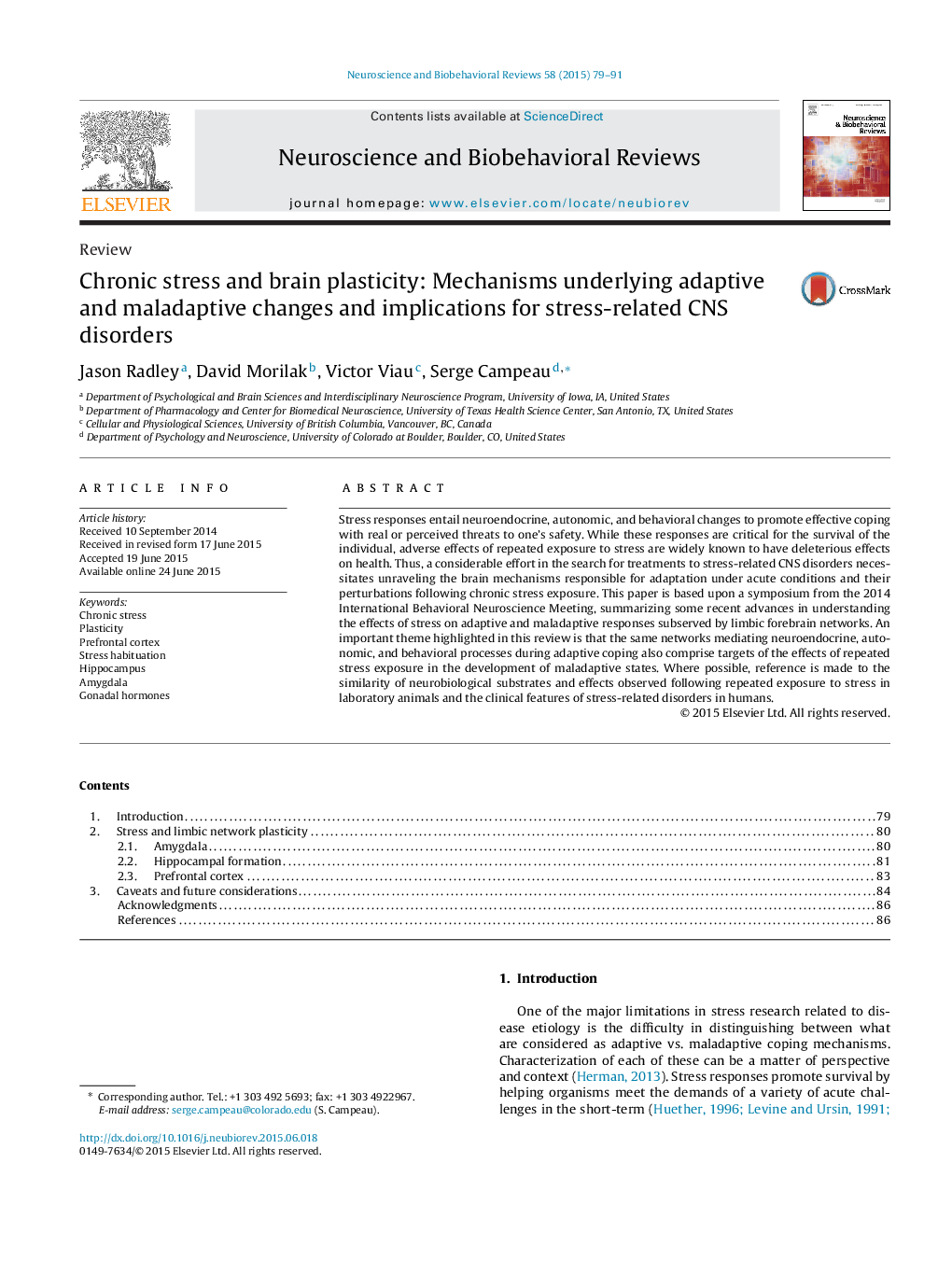| Article ID | Journal | Published Year | Pages | File Type |
|---|---|---|---|---|
| 937529 | Neuroscience & Biobehavioral Reviews | 2015 | 13 Pages |
•Adaptive and maladaptive processes associated with repeated stress are reviewed.•Amygdala, hippocampus and prefrontal cortex are differentially modulated by stress.•Adaptive processes associated with habituation to stress are discussed.•Gonadal hormone variations mediate individual differences to stress.•Importance of individual context in characterizing adaptive vs. maladaptive outcome.
Stress responses entail neuroendocrine, autonomic, and behavioral changes to promote effective coping with real or perceived threats to one's safety. While these responses are critical for the survival of the individual, adverse effects of repeated exposure to stress are widely known to have deleterious effects on health. Thus, a considerable effort in the search for treatments to stress-related CNS disorders necessitates unraveling the brain mechanisms responsible for adaptation under acute conditions and their perturbations following chronic stress exposure. This paper is based upon a symposium from the 2014 International Behavioral Neuroscience Meeting, summarizing some recent advances in understanding the effects of stress on adaptive and maladaptive responses subserved by limbic forebrain networks. An important theme highlighted in this review is that the same networks mediating neuroendocrine, autonomic, and behavioral processes during adaptive coping also comprise targets of the effects of repeated stress exposure in the development of maladaptive states. Where possible, reference is made to the similarity of neurobiological substrates and effects observed following repeated exposure to stress in laboratory animals and the clinical features of stress-related disorders in humans.
